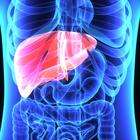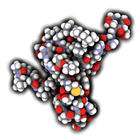Free Raptor Protein Found to Prevent Fatty Liver
February 1, 2024 9:59 am | by Columbia University | News | CommentsNon-alcoholic fatty liver disease (NAFLD) is now the most common chronic liver disease, and the fastest-growing reason for liver transplantation. It is estimated that more than half of patients with type 2 diabetes (T2D) have NAFLD, and even patients with type 1 diabetes have higher risk of developing fatty liver than people without diabetes.
Bioscience Bulletin: Particles and Pyramids, Diabetes Treatment, and Liquid Biopsies
January 29, 2024 3:09 pm | by Bevin Fletcher, Associate Editor | News | CommentsCheck out our top stories this week!
No More Insulin Injections?
January 26, 2024 10:23 am | by Anne Trafton, MIT News Office | News | CommentsA new advance may offer a way to fulfill the promise of islet cell transplantation. The researchers have designed a material that can be used to encapsulate human islet cells before transplanting them. In tests on mice, they showed that these encapsulated human cells could cure diabetes for up to six months, without provoking an immune response.
Life-extending Hormone Bolsters Immune Function
January 12, 2024 10:05 am | by Yale University | News | CommentsA hormone that extends lifespan in mice by 40 percent is produced by specialized cells in the thymus gland, according to a new study. The team also found that increasing the levels of this hormone, called FGF21, protects against the loss of immune function that comes with age.
Study Identifies Liver-Generated Hormone that Regulates 'Sweet Tooth'
January 4, 2024 9:06 am | by University of Iowa | News | CommentsPrevious research explains how certain hormones affect appetite; however, these hormones do not regulate any specific macronutrient (carbohydrate, protein, fat) and are produced by organs other than the liver.
Eyes Turn into Skin: How Inflammation Can Change the Fate of Cells
December 30, 2023 8:42 am | by Ecole Polytechnique Federale De Lausanne | News | CommentsEPFL scientists have found that chronic inflammation can cause regenerating cells to grow into new, aberrant types
'Self-Sabotage' Prevents Immune Protection Against Malaria
December 28, 2023 9:05 am | by Walter & Eliza Hall Institute | News | CommentsAustralian scientists have for the first time revealed how malaria parasites cause an inflammatory reaction that sabotages our body's ability to protect itself against the disease. Read more...
Bioscience Bulletin: Climate Deal Talks, the Benefits of Walnuts, and a New Biotech Fund
December 8, 2023 9:02 am | by Bevin Fletcher, Associate Editor | News | CommentsHere are our top stories this week!
CDC: New Diabetes Cases in US Adults are Dropping
December 2, 2023 9:21 am | by Mike Stobbe, AP Medical Writer | News | CommentsFewer cases of diabetes are being diagnosed in U.S. adults, according to startling new federal statistics released Tuesday.
Handful of Walnuts a Day May Improve Diet Quality
December 1, 2023 8:44 am | by Bevin Fletcher, Associate Editor | News | CommentsAdding 2 oz. of walnuts daily could improve diets, blood vessel cell wall function and LDL (‘bad’) cholesterol in people at risk for diabetes, new research shows.
Folding Your Genes: New Discovery Sheds Light on Disease Risk
November 30, 2023 10:12 am | by University of Manchester | News | CommentsNew research has revealed how gaps between genes interact to influence the risk of acquiring diseases such as arthritis and type 1 diabetes.
Warm Temperatures Worsen Cardiovascular Disease but not Diabetes Risk
November 30, 2023 10:06 am | by UCSF | News | CommentsYou might want to think twice before turning up that thermostat during the holidays. A new study has found that mice who spend too much time in their thermal “comfort zone” while gorging on fatty foods more than double their risk of developing cardiovascular disease compared to mice who stayed cool while eating the same diet.
Research Yields Potential Treatment Approach for Glycogen Storage Disease
November 19, 2023 9:47 am | by Duke University | News | CommentsResearchers have identified a potential treatment strategy for an often-fatal inherited glycogen storage disease.
Moderate Coffee Drinking May Lower Risk of Premature Death
November 17, 2023 10:39 am | by Harvard T.H. Chan School of Public Health | News | CommentsPeople who drink about three to five cups of coffee a day may be less likely to die prematurely from some illnesses than those who don't drink or drink less coffee, according to a new study.
Obesity Still Rising Among US Adults, Women Overtake Men
November 12, 2023 9:31 am | by Mike Stobbe, AP Medical Writer | News | CommentsObesity is still rising among American adults, despite more than a decade of public-awareness campaigns and other efforts to get people to watch their weight, and women have now overtaken men in the obese category, new government research shows.
Genetic Factors that Influence Weight and Neurological Disorders Identified
November 11, 2023 10:54 am | by Lawrence Berkeley National Laboratory | News | CommentsA new study has identified genetic factors that influence motor performance and body weight in a genetically diverse group of mice. The researchers also found the genes identified in the mice overlap significantly with genes related to neurological disorders and obesity in people.
Circadian Clock Controls Insulin and Blood Sugar In Pancreas
November 9, 2023 9:39 am | by Northwestern University | News | CommentsA new study has pinpointed thousands of genetic pathways an internal body clock takes to dictate how and when our pancreas must produce insulin and control blood sugar, findings that could eventually lead to new therapies for children and adults with diabetes.
Rocket Scientists Bring Expertise to Analyzing Breath of Sick Children
November 9, 2023 9:28 am | by Stanford University | News | CommentsThree engineering students work to create a disease breathalyzer. It would be a gadget straight out of Star Trek - a quick, noninvasive way to detect everything from diabetes to cancer.
Molecular Switch Generates Calorie-Burning Brown Fat
October 30, 2023 8:51 am | by UCSF | News | CommentsA research team has identified a molecular switch capable of converting unhealthy white fat into healthy, energy-burning brown fat in mice. Drugs that flip this switch rapidly reduced obesity and diabetes risk factors in mice fed a high fat diet.
Can Changes in the Brain Affect Your Microbiome?
October 30, 2023 8:47 am | by University at Buffalo | News | CommentsThe microbiome in your gut can affect your brain: More and more data have recently shown that. But can it go the other way? Can brain changes affect your gut microbiome? And if so, do these changes affect your health and well-being?
Newly Identified Biochemical Pathway Could Be Target For Insulin Control
September 28, 2024 11:08 am | by Duke University | News | CommentsIn the final event leading to the development of Typ 2 diabetes, the pancreas loses its ability to secrete insulin and clear glucose from the blood. Preventing this breakdown in insulin secretion is a key goal in the fight to reduce the burden of a disease that afflicts an estimated 29 million people in the United States.
State Obesity Rates Hold Steady; 30 Pct or More in 22 States
September 22, 2024 10:03 am | by Mike Stobbe, AP Medical Writer | News | CommentsNew government data shows that in most states, the rate of adult obesity is not moving.
Maternal Protein Deficiency During Pregnancy ‘Memorized’ by Fetal Muscle Cells
September 21, 2024 10:28 am | by University of Illinois | News | CommentsA new study has uncovered the genetic processes that link insufficient protein consumption during pregnancy with the development of muscle problems in mothers and their male offspring.
New Strategy to Lower Blood Sugar May Help in Diabetes Treatment
September 8, 2024 8:56 am | by Washington University in St. Louis | News | CommentsSome treatments for type 2 diabetes make the body more sensitive to insulin, the hormone that lowers blood sugar. But new research suggests a different strategy: slowing the production of glucose in the liver.
Diabetes and Buildup of Tau May Be Linked
September 3, 2024 8:52 am | by Bevin Fletcher, Associate Editor | News | CommentsPeople with type 2 diabetes may have a greater buildup of tangles of protein in their spinal fluid, irrespective of dementia, according to a new study published Sept. 2 in Neurology.
- Page 1
- Next











